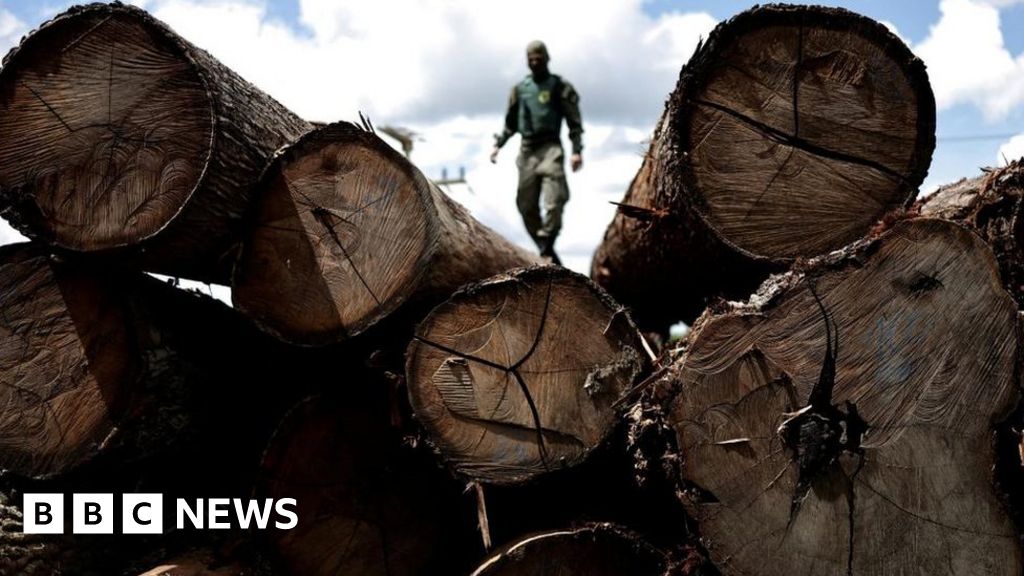The eight countries that share the Amazon basin have fallen short of an agreed goal to end deforestation.
Delegates from the countries are meeting in the Brazilian city of Belém for a two-day summit on the issue, the first such gathering in 14 years.
A joint declaration on Tuesday created an alliance to combat deforestation, but left each country to pursue its own conservation goals.
Preserving the Amazon is a central part of efforts to tackle climate change.
Ahead of the summit, Brazilian President Luiz Inácio Lula da Silva had called for a common goal of ending deforestation by 2030, a policy his own government has already adopted.
Around 60% of the Amazon, the largest rainforest in the world, lies in Brazil. The other countries represented at the gathering are Bolivia, Colombia, Ecuador, Guyana, Peru, Suriname and Venezuela.
In his opening speech on Tuesday, Lula spoke of the “severe worsening of the climate crisis” and said “the challenges of our era, and the opportunities arising from them, demand we act in unison”.
“It has never been so urgent,” he said.
Bar chart showing lower deforestation rates in 2023 compared to 2022 across most months from January to July
Deforestation in Brazil has fallen dramatically since Lula won the presidency from predecessor Jair Bolsonaro, who favoured development over conservation, but thousands of sq km continue to be lost each year.
The joint statement, named the Belém declaration, said the new alliance would aim to “prevent the Amazon from reaching a point of no return”.
It also included commitments to enhance co-operation on issues like water management, health, sustainable development and common negotiating positions at global climate summits.
Some will be disappointed the language is not stronger, but the summit has signalled a desire among countries in the region to work towards solutions to one of the biggest challenges of our time.
There have been differences in opinion in some areas.
Colombia’s President, Gustavo Petro, for example, wants other countries to match his pledge to ban new oil exploration, while Brazil is considering exploring new areas at the mouth of the Amazon river.
Despite the differences, the gathering has undoubtedly given this region a voice when it comes to combatting climate change, and is being viewed as a precursor to the 2025 UN Climate Change conference, which will also be held in Belém.
Representatives from the eight countries which share the Amazon will attend
The summit opened on the same day that the European Union’s climate change panel confirmed that July had been the hottest month on record globally.
The billions of trees that make up the Amazon hold vast amounts of carbon, accumulated over centuries, and every year their leaves continue to absorb carbon dioxide that would otherwise remain in the atmosphere and contribute to the rise in global temperatures.
The world has already warmed by about 1.1C since the industrial era began and temperatures will keep rising unless governments around the world make steep cuts to emissions.
Thanks to @stopthatgirl7 for the link.
@Arotrios thanks for updating us on this! Ah well. Still better than nothing.
Looks like we were right about Brazil’s refusal on the oil exploration, but at least it’s a start.
If they stick together as a bloc at COP28, as reported, that could lead somewhere.



